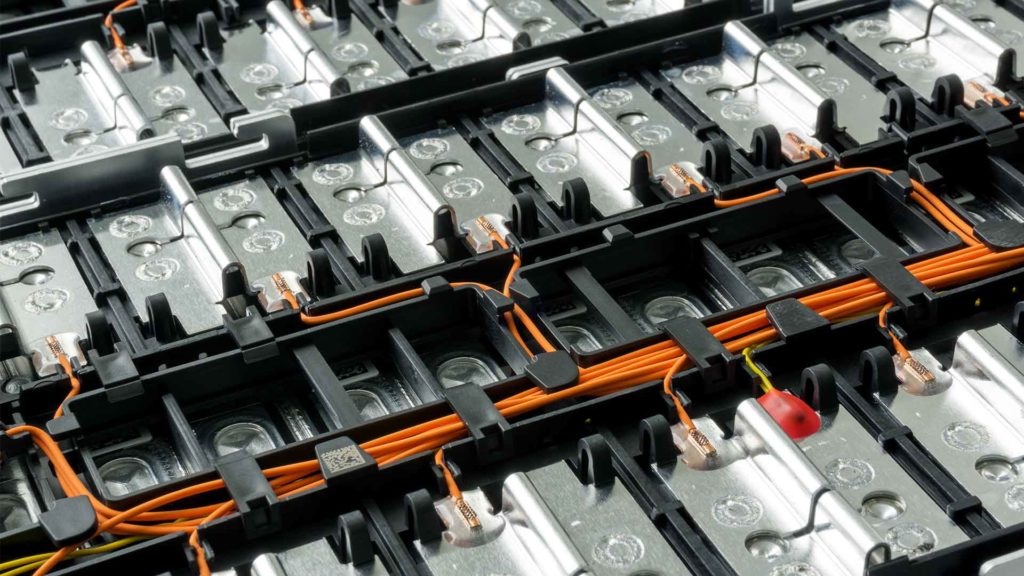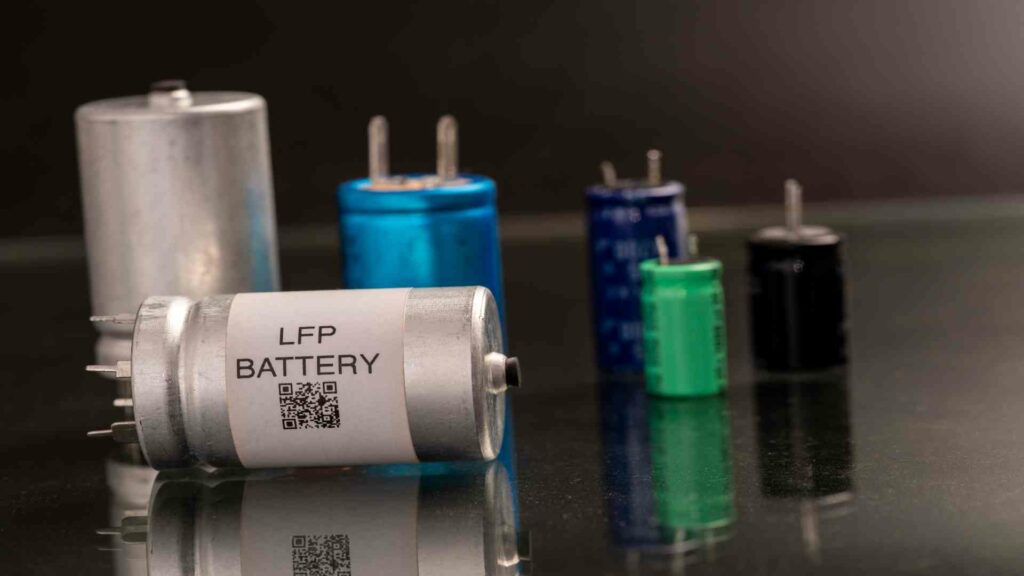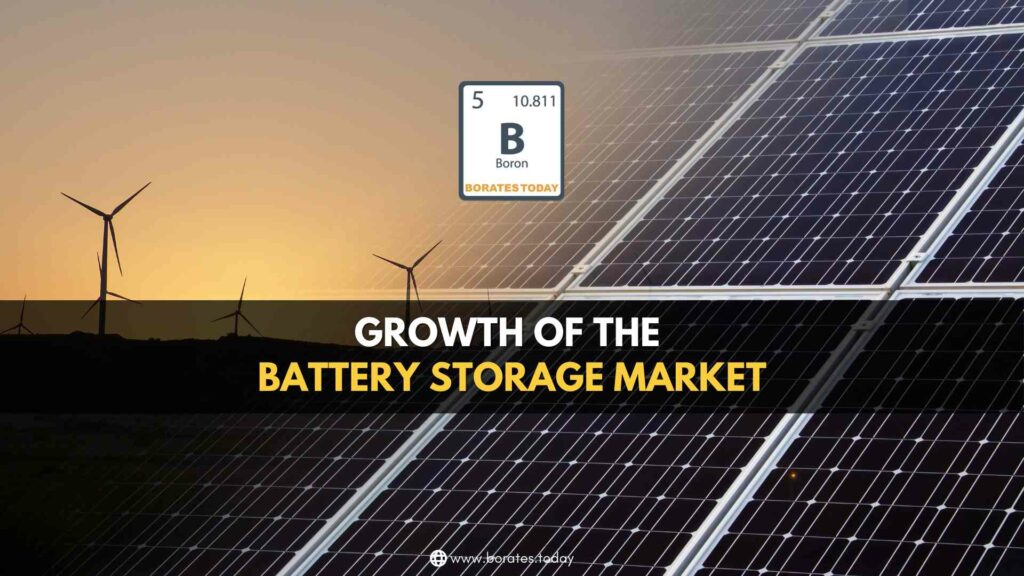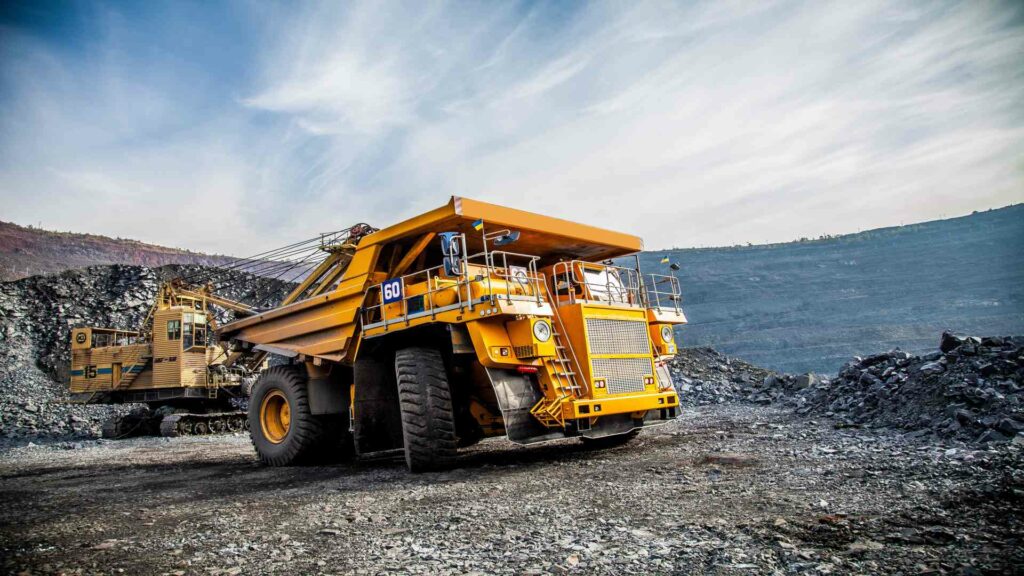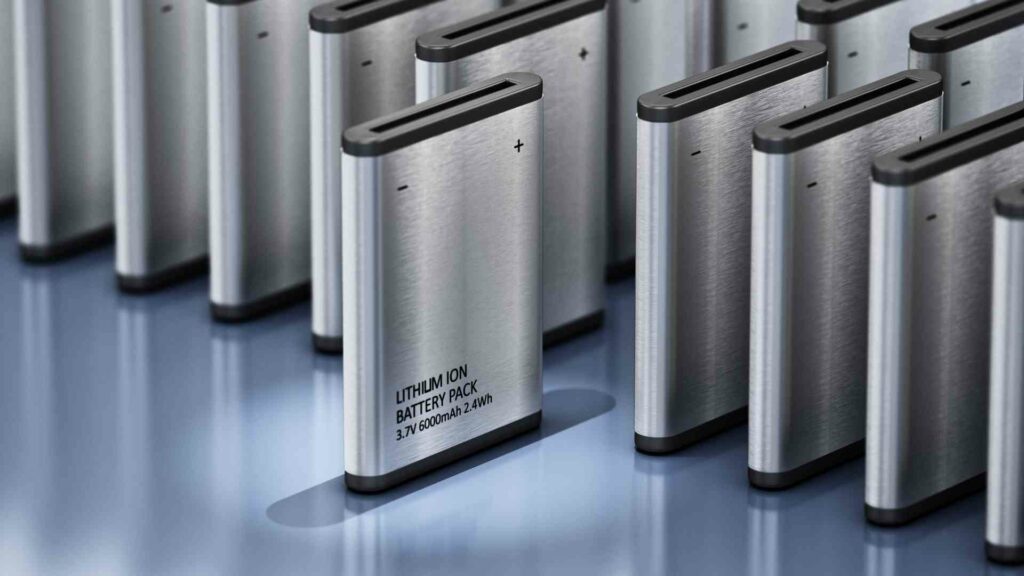Lithium-ion Batteries by Li-S Energy
Li-S Energy Limited, established in 2019, is an Australian company, a joint venture between Li-S Energy’s founding shareholders, PPK Group, BNNT Technology, and Deakin University. Its purpose is to develop a new boron battery technology that incorporates Boron Nitride Nanotubes, which are more efficient, lower cost, and greener than current batteries for marketis including automotive, defence and aviation.
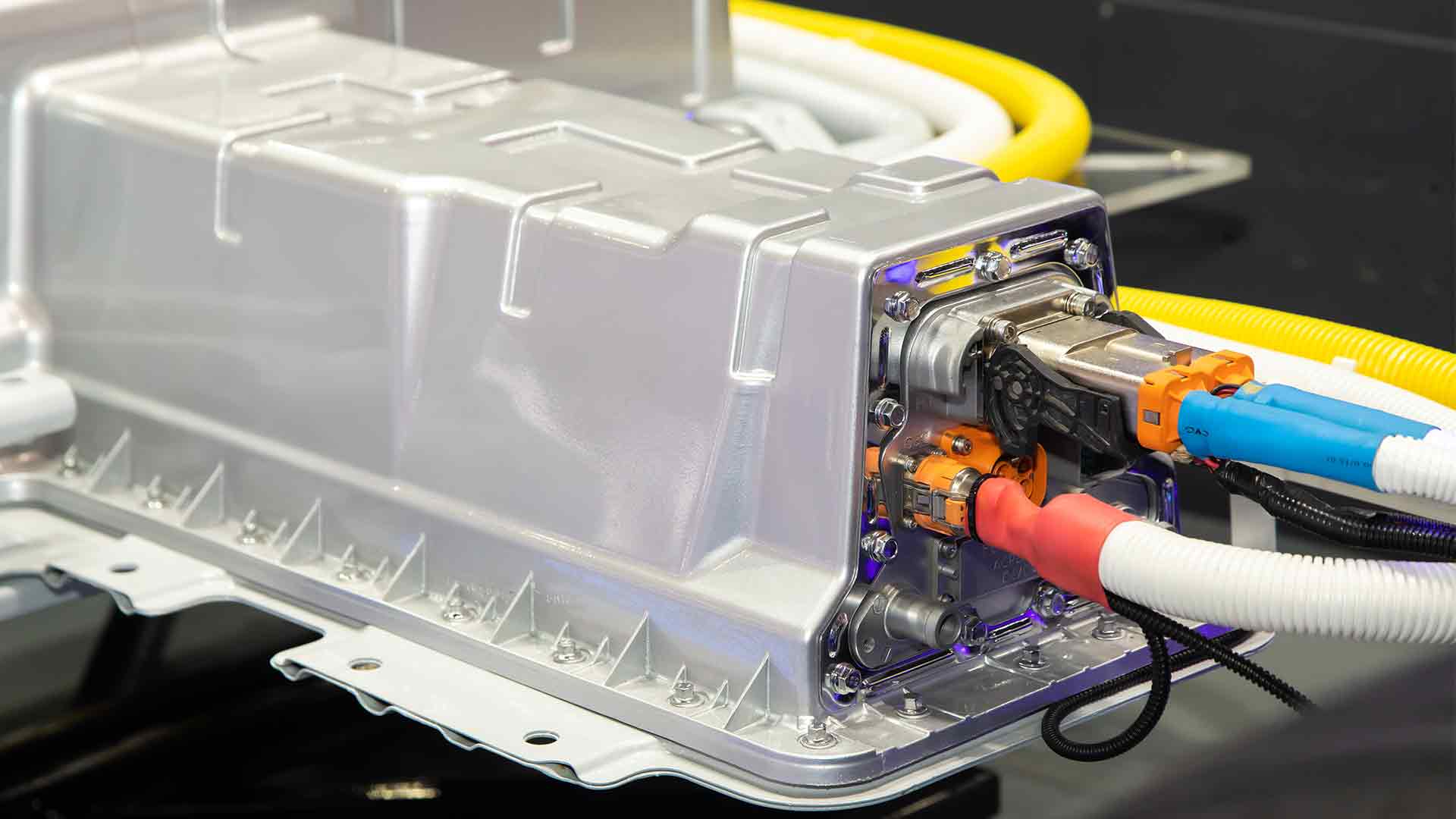
Boron and EV Batteries
2030 – Towards Renewable Energy Goals
With climate change motivating people to move to renewable energy and electric vehicles (EVs), battery demand surges. It is forecasted to increase 10x by 2030. And there will be an increased need for batteries that are more energy-dense, lighter, faster, environmentally friendly.
With this in mind, Li-S Energy has developed a lithium-sulfur (Li-S) battery containing boron nitride nanotubes (BNNT). Li-S batteries can increase energy density well beyond lithium-ion batteries because of their extended cycle life. But why the need for change?
Disadvantages of Lithium-ion Batteries
For years, lithium-ion batteries have been the preferred power source for many products because of their high energy density and lightweight. However, they are one of the best methods for storing energy in a portable device. Despite their many advantages, lithium-ion batteries are prone to degradation and are expensive.
As lithium ions move through the electrodes and electrolyte, lithium metal degrades into lithium-ion due to oxidation reactions at both electrodes. Consequently, this results in irreversible structural changes in the electrode material, which reduces capacity and cycling stability over time.
The Answer
Li-S Energy has found a solution to this problem. It makes Li-Ion batteries more sustainable for future generations by using boron nitride nanotubes as an interlayer material for Li-ion batteries.
A cathode of sulfur-containing porous carbon nanotubes Li-S can be used in Li-Ion batteries. Li-ions are positively charged, while sulfur ions are harmful. When these two combine, they produce an electric current that powers your device. As a result, this will ensure the Li-Sand Li-ion batteries last longer than other Li-ion batteries and charge less time.
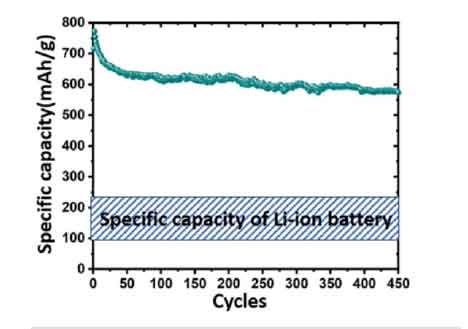
Li-ion Battery Capacity
Source: Deakin University
Li-S Energy’s new technology usingboron nitride nanotubes will enhance the performance of Li-ion batteries, and we may finally see an end to lithium-ion battery degradation. The new batteries make use of advanced lithium-sulfur chemicals. In this case, BNNTs or other nanomaterials are integrated into the battery components. In contrast to existing lithium-ion and lithium-sulfur lithium-ion batteries, Li-ion batteries have a cathode of sulfur-containing porous carbon nanotubes. This combination is intended to improve battery energy capacity and cycle stability.
Advantages of Li-S Batteries
- Lithium-sulfur batteries have a theoretical maximum energy density of more than five times greater than lithium-ion batteries.
- Lithium-sulfur batteries are lighter than lithium-ion batteries, a key benefit for drones, aviation, electric vehicles, wearables, and portable devices.
- Lower cost per kWh– Lithium-sulphur batteries do not require expensive cobalt, nickel, manganese, and other heavy metals used in many lithium-ion batteries.
- Faster Charging– Lithium-sulfur batteries recharge faster and hold more energy per charge than lithium-ion batteries.
- A lithium-sulfur battery is less prone to “thermal runaway” than a lithium-ion battery. “Thermal runaway” is the process that causes lithium-ion batteries to explode or catch fire.
- Li-S batteries are cleaner and greener – Lithium-sulfur batteries contain no heavy metals, thus eliminating the environmental impact of mining these metals. They are also less likely to cause ecological contamination on disposal.
Target Market Sectors
The rechargeable battery market is developing at incredible speed. It is forecasted to continue growing strongly over the foreseeable future. There are critical market sectors for the same and target customer groups.
Electric Vehicles and E-Mobility
Global climate change targets are moving toward a once-in-a-century shift to electric vehicles. Many other governments are moving toward similar targets as well. The European Union legislation bans new petrol and diesel car sales from 2035.
The technology used in law enforcement and defense is increasingly dependent on portable electronic devices and batteries.
It is complex to produce safe, light batteries with a high energy density and quick recharge times. Drones and electric aircraft will fly for longer, allowing commercial drone applications to scale up and enhance aviation safety.
Consumer Electronics and Internet of Things
There continues to be a strong market for connected wearable devices such as smartwatches, portable personal devices such as wireless speakers and earphones, and remote asset monitoring sensors. Manufacturers are working to make batteries more efficient to drive innovation and market adoption.
Li-S Energy Limited – Well-funded to Take Advantage
Li-S Energy Limited (ASX oppo: LIS), a company that invests in advanced technology in rechargeable batteries, is an opportunity to play a part in greening the planet in a multiplying market and will continue to grow strongly in the future.
With the rapid growth of the rechargeable battery market, the company has the opportunity to invest in new advanced technologies, promoting its investment actions. For example, Insitu Pacific, a Boeing company, collaborates with Li-S Energy.
At Li-S Energy, results are everything. The Li-S Energy Battery technology was developed and tested at Deakin’s Institute for Frontier Materials. The company has a dedicated lab that can make pouch and coin batteries and a fully-equipped laboratory to try it. The Li-S Energy lithium-sulphur battery technology has significantly improved performance, stability, and cycle life over conventional lithium-sulfur cells without BNNTs. TMPR Consulting, a worldwide recognized battery expert, validated the results.
Li-S Energy now has two provisional patents that cover the novel function of BNNT in the chemistry for the Li-S Energy Battery. To drive innovation in battery technology through cutting-edge research and development, the company established clear goals with a defined strategy.
The Li-S Energy Battery can be used in a variety of key markets. These include electric vehicles, consumer electronics, aviation, and defense. More than 55% of the demand will come from electric cars by 2025 and 50% by 2040.
Following Li-S Energy’s $20M capital raise in April 2021, the Initial Public Offering is now possible. The capital raise round and the offer will generate net proceeds to fund industrial scale-up and research and development.

